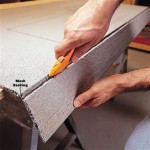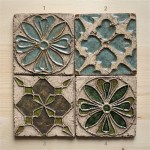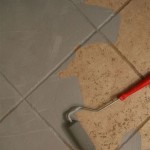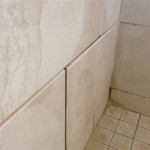How To Remove Hard Stains From Bathroom Tiles
Bathroom tiles are prone to accumulating hard-to-remove stains, especially in areas like the shower and around the tub. These stains can be caused by a variety of factors, including hard water deposits, soap scum, mildew, and even rust. Fortunately, with the right cleaning agents and techniques, you can effectively remove these stubborn stains and restore your bathroom tiles to their original shine. This article will guide you through the process of tackling various hard stains from bathroom tiles.
Understanding the Cause of Stains
Before delving into cleaning methods, it is crucial to understand the underlying cause of the stains. This will help you select the most appropriate cleaning agent. Hard water stains, for instance, are caused by mineral deposits, primarily calcium and magnesium, left behind when water evaporates. Soap scum forms due to the accumulation of soap residue mixed with water. Mildew is a type of fungus thrives in damp, dark environments. Finally, rust stains are caused by the oxidation of iron, often from pipes or metal objects.
Key Cleaning Methods
The most effective cleaning methods for hard stains on bathroom tiles often involve a combination of abrasive cleaning agents and gentle scrubbing. Here are three key approaches to tackling various stains:
1. Using Commercial Cleaners
A wide range of commercial cleaners are available specifically designed to remove hard water stains, soap scum, and mildew. These cleaners typically contain acidic ingredients such as citric acid or hydrochloric acid, which can effectively dissolve mineral deposits and break down organic matter. However, it is important to follow the manufacturer's instructions carefully, as some cleaners can damage certain tile types or grout. Always wear gloves and ensure adequate ventilation when using acidic cleaners.
2. Employing Natural Remedies
For a more eco-friendly approach, natural remedies can be effective in removing stains. Vinegar, a mild acid, is a common household ingredient known for its ability to dissolve mineral deposits. Simply mix equal parts vinegar and water in a spray bottle, apply it to the stained areas, and let it sit for 15-20 minutes before scrubbing with a soft-bristled brush. Baking soda, a mild abrasive, can also be used to scrub away stains while neutralizing odors.
3. Using a Pumice Stone
For stubborn stains that resist other cleaning methods, a pumice stone can be a valuable tool. Pumice is a natural volcanic rock with a rough, abrasive texture that can effectively remove even the most ingrained stains. However, it is important to use a pumice stone with caution, as it can scratch certain tile surfaces. Apply gentle pressure in a circular motion, avoiding excessive scrubbing. Test the pumice stone on a small, inconspicuous area first to ensure compatibility with your tiles.
Important Precautions
Safety and proper techniques are paramount when cleaning bathroom tiles. Here are some essential considerations:
- Always wear gloves to protect your hands from harsh chemicals or abrasives.
- Ensure adequate ventilation when using strong cleaners.
- Avoid using abrasive cleaners on delicate or porous tile surfaces.
- Test any cleaning agent on a small, inconspicuous area before applying it to the entire surface.
- Rinse the tiles thoroughly after applying any cleaning agent.
- If in doubt, consult a professional cleaning service for guidance.

How To Remove Hard Water Stains From Bathroom Tiles Easily

How To Remove Hard Water Stain From Tile And Grout

How To Remove Stains From Bathroom Tiles

3 Best Ways To Get Rid Of Hard Water Stains From Bathroom Tiles Kent

Shower Cleaning Makeover Removing Limescale From Glass Door And Grout Tiles

How To Keep Your Fridge Stain Free Check Out These Easy Tips Vooki In

How To Clean And Re Tiles In Bathroom

How To Remove Hard Water Stains Chet S Cleaning

How To Remove Hard Water Stains From Tile And Grout Woodard

How To Get Rid Of White Stains On Bathroom Tiles Elite
Related Posts








